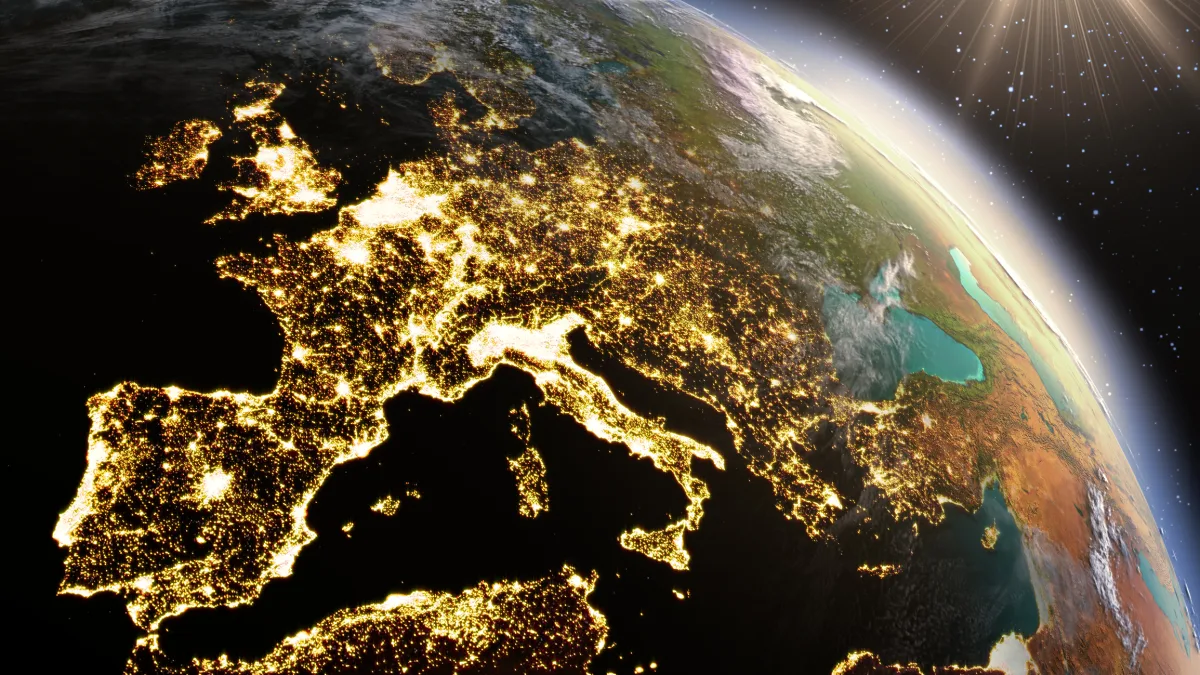Europe is not waiting for the future to arrive. It is already being reshaped by it. Conflict on its borders (19 Russian drones in Poland’s airspace earlier this week), accelerating climate breakdown, technological leaps, shifting demographics, and pressure on democratic systems are no longer distant scenarios. These are realities.
The European Commission’s latest foresight work calls them megatrends. Forces that cut across borders and industries, shaping the context in which governments, businesses, and citizens must now operate. The report calls for ‘Resilience 2.0’—a shift from crisis management to transformation.
But resilience, as valuable as it is, only gets you so far. It’s the ability to absorb shocks and survive. Even ‘Resilience 2.0’, as the Commission now frames it, will not make Europe thrive. What Europe needs is something deeper: a structured and deliberate practice of redesigning before systems break—embedding healthy cycles of renewal, balancing continuity with change, and building the capacity to thrive in turbulence rather than merely endure it.
Urgency
Our own Bridging the Reinvention Gap research shows just how urgent this shift is. We surveyed more than 1,000 leaders across five economies. Nearly all recognised disruption was coming. Many could even describe it in detail. And yet only 12.9 per cent qualified as reinvention leaders—organisations acting with clarity and courage to reshape themselves before disruption forced their hand.
That’s the gap Europe faces today: awareness without execution.
Megatrends make the choice unavoidable. Climate is not an externality—it is a structural reality. Technology is not a toolkit—it is a new architecture of work, power, and production. Demographic shifts are not background data—they are the human engine on which growth depends. Geopolitics is not noise—it is the field on which Europe’s relevance will be tested.
For governments, the lesson is clear. Redesigning systems beyond electoral cycles is no longer optional. Education must prepare citizens not just for today’s jobs but for tomorrow’s industries. Energy grids must reflect decentralisation and resilience, not simply efficiency. Institutions must evolve alongside digital democracy, rather than patching holes in outdated frameworks.
For businesses, the message is no different. Survival depends on looking beyond quarterly results and asking harder questions: Are we building relevance for the markets of tomorrow, or just optimising for the ones of yesterday? Are our products aligned with shifting values, or are we quietly eroding trust? Are we treating technology as a bolt-on efficiency, or as a chance to reimagine our model entirely?
No going back
The temptation, for both sectors, is to polish resilience. To survive the storm, steady the ship, and hope normality returns. But the megatrends tell us there is no going back. The future is not another version of the past.
This does not mean abandoning Europe’s foundations—its openness, its diversity, its democratic values. It means rethinking how those foundations function under new conditions. A green transition that bridges divides rather than deepens them. A digital shift that augments human capacity instead of hollowing it out. A geopolitical posture that projects stability not by looking inward, but by leading outward.
The truth is that transformation cannot be delayed to the next cycle or the next strategy refresh. It must become Europe’s operating system. A way of thinking, deciding, and acting—built in, not bolted on.
The question facing Europe is not whether megatrends will shape us. That’s already happening. The real question is whether we act fast enough to reset our systems, rebuild our models, and design the next version of ourselves before the current one runs out of road.
Resilience may keep us standing. But only the courage to reimagine—and to do it now—will keep us relevant. And thrive.
Photo: Dreamstime.







